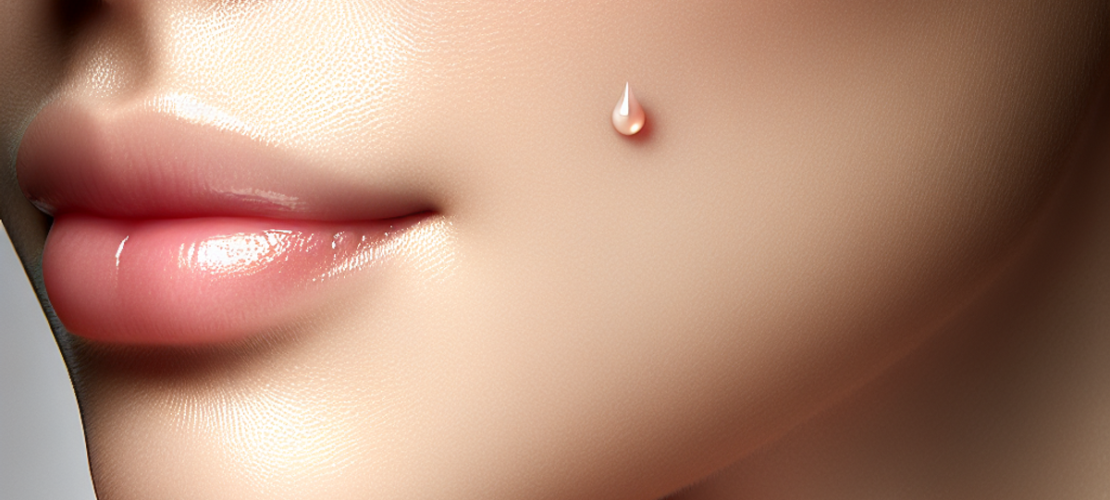Introduction
Treating pimples is an essential aspect of skincare, as it can help prevent scarring and promote overall skin health. There are various approaches to treating pimples, ranging from over-the-counter medications to professional medical procedures. In this article, we will explore the different treatment options available for managing pimples effectively. Our goal is to provide comprehensive insights into:
- Mild acne treatment options
- Prescription medications for moderate to severe acne
- Professional and medical procedures for severe acne
- Home remedies and preventive measures
By understanding these diverse treatment approaches, you can make informed decisions about the most suitable methods for your individual needs and skin type.
Understanding Pimples
When it comes to understanding pimples, it’s essential to grasp the key aspects that contribute to their development. Here are some crucial talking points to consider:
Definition of Pimples
Pimples, also known as acne, are the result of hair follicles becoming clogged with oil and dead skin cells. This can lead to the formation of whiteheads, blackheads, or pimples.
Common Causes of Pimples
The primary causes of pimples include hormonal changes, excess oil production, bacteria, and inflammation. These factors play a significant role in the development of acne.
Factors that Contribute to the Development of Pimples
Various factors contribute to the development of pimples, including genetics, diet, stress, and environmental influences. Understanding these factors can help in formulating an effective approach to managing and treating pimples.
1. Mild Acne Treatment Options
Mild acne is when you have a few pimples, occasional breakouts, and generally clear skin with minimal swelling. There are several treatment options available for mild acne that can help reduce pimples and make your skin clearer. Here’s what you need to know:
Understanding Mild Acne
Mild acne refers to having a few pimples or occasional breakouts without much swelling or scarring. It usually shows up as blackheads, whiteheads, and small red bumps.
Using Over-the-Counter Creams and Gels
Over-the-counter (OTC) creams and gels are easy to get and can be used to treat mild acne. These products usually have active ingredients like benzoyl peroxide or salicylic acid.
How Benzoyl Peroxide Works
Benzoyl peroxide is a common ingredient in many OTC acne treatments. It kills bacteria on your skin and clears out your pores. Using benzoyl peroxide regularly can reduce the number of pimples you get and stop new ones from forming.
How Salicylic Acid Helps
Salicylic acid is another popular ingredient in OTC acne treatments. It helps remove dead skin cells, unclog your pores, and bring down swelling. Salicylic acid is great for treating blackheads and whiteheads.
When using OTC creams and gels for mild acne, make sure to:
- Read and follow the instructions on the packaging.
- Use them consistently as directed.
- Be patient—it might take a few weeks to see results.
Also, keep your skin clean by washing it gently twice a day with a mild cleanser.
Remember that everyone’s skin is different, so what works for one person may not work for you. If you don’t see any improvement or if your acne gets worse, it’s a good idea to see a dermatologist. They can help figure out what’s going on and suggest other treatments if needed.
2. Prescription Medications for Moderate to Severe Acne
Prescription medications are important for treating moderate to severe acne. While over-the-counter options can work for mild acne, prescription treatments are often needed for more severe cases. Here’s what you should know:
When Do You Need Prescription Medications?
If your acne doesn’t get better with over-the-counter treatments or if you have moderate to severe acne, it’s important to see a dermatologist or healthcare professional. They can assess your condition and decide on the best treatment plan for you.
How Antibiotics Help with Moderate to Severe Acne
Inflammatory acne is often treated with antibiotics. These medications reduce the amount of bacteria on your skin and decrease inflammation. Your doctor may recommend oral antibiotics like tetracycline, doxycycline, or minocycline for short-term use in controlling acne flare-ups.
The Power of Retinoids in Fighting Pimples
Retinoids, which are derived from vitamin A, are highly effective against acne. They work by unclogging your pores, reducing inflammation, and speeding up cell turnover. Topical retinoids such as tretinoin, adapalene, and tazarotene are commonly prescribed for long-term use to prevent new breakouts and improve overall skin texture.
Managing Acne with Hormonal Birth Control
Hormonal changes can contribute to acne development, particularly in women. Hormonal birth control methods like combination oral contraceptives or certain progestin-only pills can help balance hormone levels and decrease acne breakouts. It’s essential to talk to a healthcare provider about your choices to find the right hormonal contraceptive for you.
Prescription medications provide specific solutions for moderate to severe acne by addressing the root causes of breakouts:
- Antibiotics help control inflammation and bacteria.
- Retinoids promote skin renewal and unclog pores.
- Hormonal birth control can regulate hormonal imbalances.
By consulting with a healthcare professional, you’ll receive the most suitable prescription treatment for your unique acne concerns.
3. Professional and Medical Procedures for Severe Acne
When you’re dealing with severe acne, it’s important to reach out to a dermatologist or healthcare professional for assistance. These experts have the knowledge and expertise needed to assess your condition and provide targeted treatments that can help reduce symptoms and prevent scarring.
Here are some professional and medical procedures commonly used for severe acne:
- Dermatologist Treatment: Dermatologists play a vital role in treating severe acne. They can provide personalized treatment plans based on your specific needs and skin type. Additionally, they may recommend a combination of treatments to achieve the best results.
- Light/Laser Therapy: Light and laser therapies are effective in targeting bacteria that contribute to acne breakouts. These treatments work by reducing inflammation, shrinking oil glands, and stimulating collagen production for smoother skin. Common types of light/laser therapies include intense pulsed light (IPL), blue light therapy, and diode laser treatment.
- Photodynamic Therapy: Photodynamic therapy (PDT) is another option for treating severe acne. This procedure involves applying a photosensitizing agent to the skin, which is then activated by light exposure. PDT helps kill acne-causing bacteria, reduces oil production, and minimizes inflammation.
- Microdermabrasion: Microdermabrasion is a non-invasive procedure that exfoliates the skin’s outer layer, promoting cell turnover and improving skin texture. It can also help reduce the appearance of acne scars by stimulating collagen production.
These professional procedures should always be carried out by qualified healthcare professionals or dermatologists who will customize the treatment according to your specific needs. While these procedures can be highly effective in treating severe acne, it’s essential to follow post-treatment care instructions and maintain a consistent skincare routine for long-term results.
By seeking professional help and considering these medical procedures, you can effectively manage severe acne and minimize its impact on your skin.
4. Home Remedies and Preventive Measures
Natural remedies for treating pimples
When dealing with pimples, natural remedies can be a gentle yet effective approach to treatment. These remedies often have anti-inflammatory and antimicrobial properties that can help reduce the appearance of pimples and promote healing.
How tea tree oil can help with acne
Tea tree oil, known for its antibacterial and anti-inflammatory properties, is a popular natural remedy for acne. It can effectively reduce the number of acne lesions and alleviate redness and swelling associated with pimples.
Benefits of aloe vera in reducing inflammation and promoting healing
Aloe vera is widely recognized for its soothing properties. When applied topically, it can significantly reduce inflammation and redness caused by pimples. Its healing properties also aid in the repair of damaged skin.
Effectiveness of honey masks and green tea applications
Honey masks are beneficial due to honey’s natural antibacterial properties that help combat acne-causing bacteria. They soothe the skin and reduce the appearance of pimples. Similarly, applying green tea to the skin can help reduce inflammation and oil production, thanks to its antioxidants and tannins.
Importance of preventive measures in managing pimples
Preventive measures play a crucial role in managing pimples. Using oil-free skincare products, maintaining a balanced diet, staying hydrated, reducing stress, and avoiding tight-fitting clothing on breakout-prone areas are essential steps in preventing pimple formation.
By incorporating these natural remedies and preventive measures into your skincare routine, you can take proactive steps towards managing pimples effectively.
Conclusion
Pimple Treatment Summary
In this article, we have explored various treatment options for pimples, ranging from mild acne to severe cases. Let’s recap the key points discussed:
Mild Acne Treatment Options:
- Over-the-counter creams and gels containing benzoyl peroxide and salicylic acid can be effective in reducing mild acne.
Prescription Medications for Moderate to Severe Acne:
- Antibiotics are often prescribed to treat moderate to severe acne and reduce inflammation.
- Retinoids are beneficial in reducing pimples and preventing future breakouts.
- Hormonal birth control can also help regulate hormones and improve acne symptoms.
Professional and Medical Procedures for Severe Acne:
- Dermatologists offer various procedures to manage severe acne and prevent scarring.
- Light/laser therapy targets bacteria and reduces inflammation in pimples.
- Photodynamic therapy is effective in treating acne by targeting the oil glands and bacteria.
- Microdermabrasion improves skin texture and reduces the appearance of scars.
Home Remedies and Preventive Measures:
- Natural remedies like tea tree oil, aloe vera, honey masks, and green tea applications can help with acne management.
- Preventive measures such as using oil-free cleansers, noncomedogenic products, a balanced diet, hydration, stress reduction, and avoiding tight-fitting hats/clothing on breakout-prone areas are essential.
Finding the Right Treatment Approach
It is important to remember that everyone’s skin is unique, and what works for one person may not work for another. When it comes to treating pimples, finding the right approach for your individual needs is crucial. Consider consulting with a dermatologist or healthcare professional who can assess your skin condition and recommend the most suitable treatment options.
By understanding the different treatment approaches available, you can make informed decisions and take proactive steps towards managing your pimples effectively. Remember to be patient and consistent with your chosen treatment plan, as it may take some time to see noticeable improvements.
Take control of your skin health and embrace a treatment approach that suits you best. With the right care and perseverance, you can achieve clearer, healthier skin and regain your confidence.

